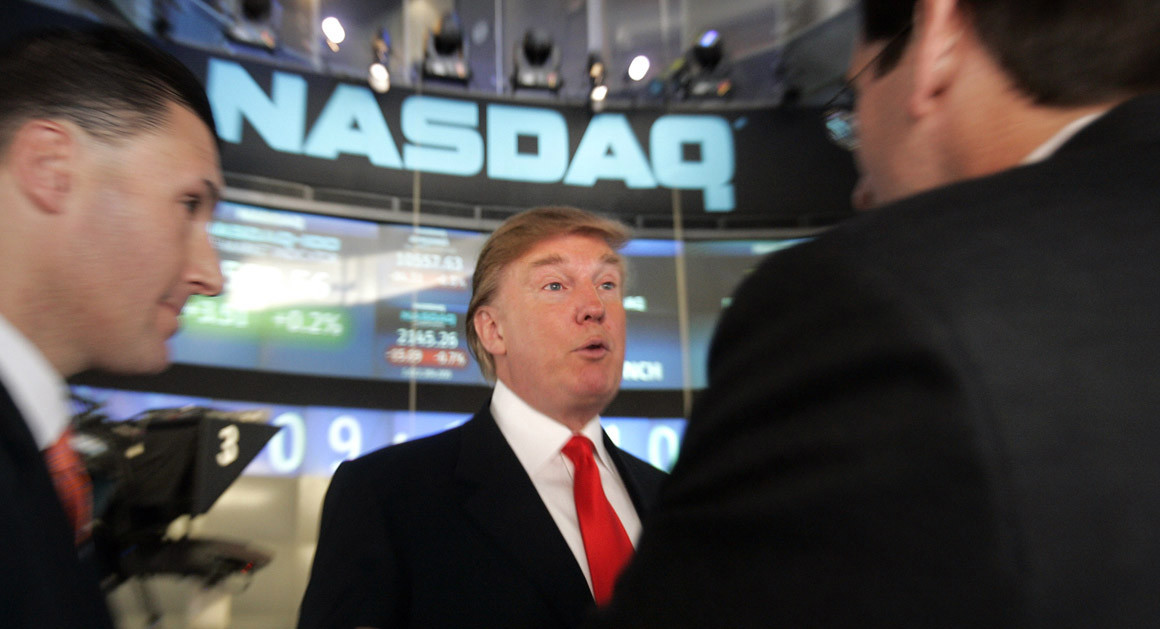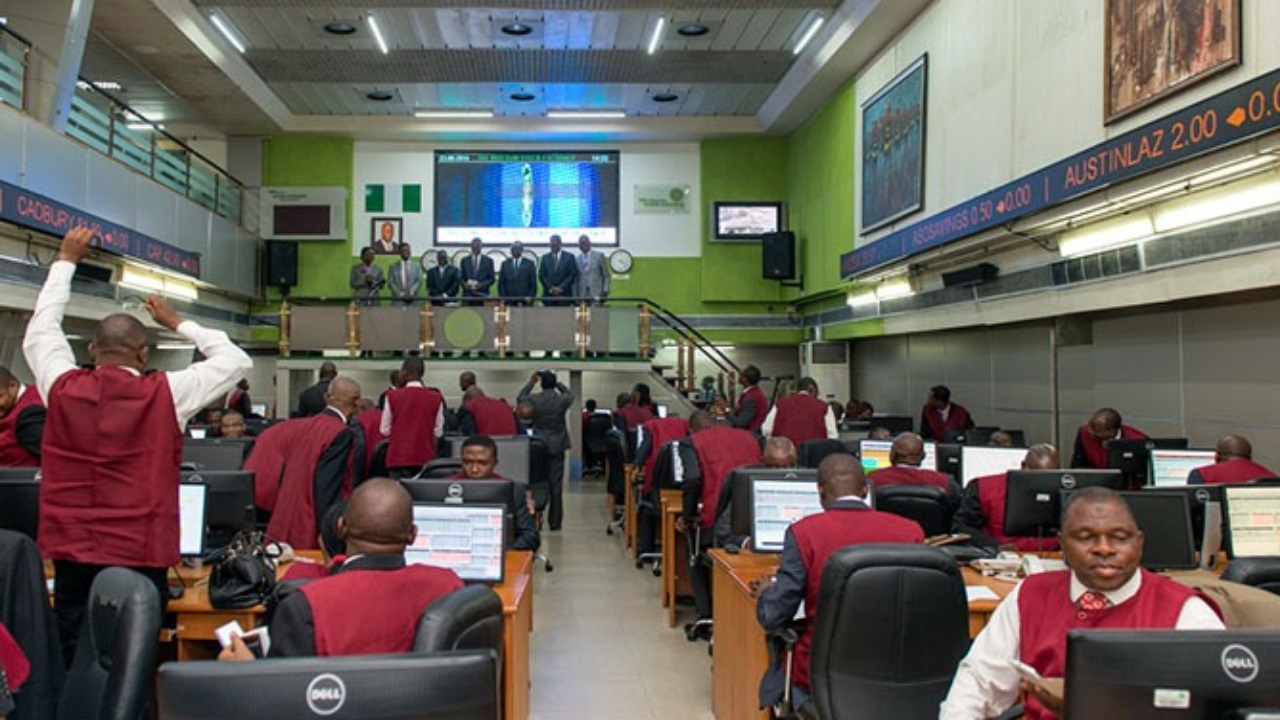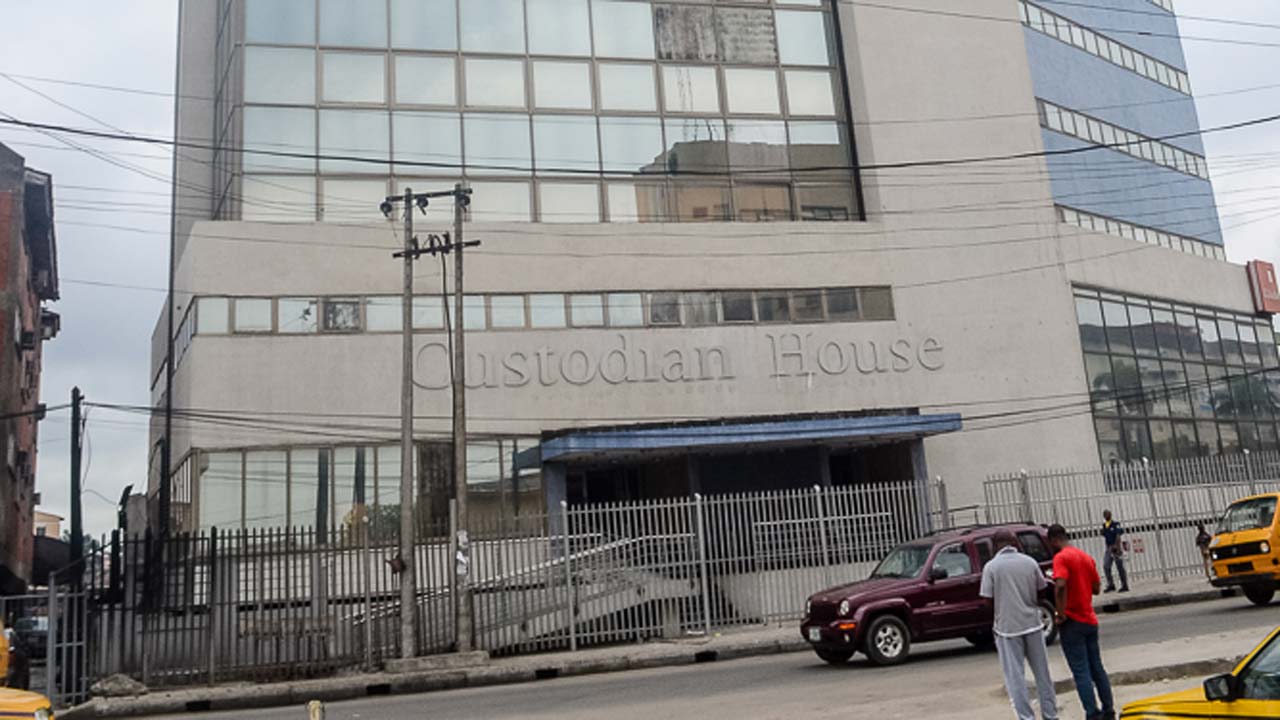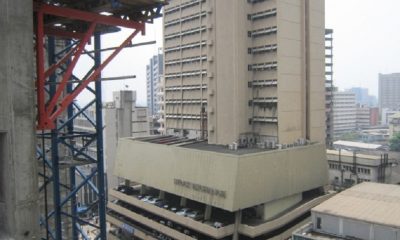Economy
Developments on North Korea Talks in Focus on Wall Street

The major U.S. index futures are pointing to a lower opening on Friday after stocks recovered from early weakness but still closed modestly lower in the previous session.
Geopolitical uncertainty may weigh on the markets following President Donald Trump?s decision to call off the historic summit with North Korean leader Kim Jong Un.
North Korea responded by saying they remain open to talks, with Vice Foreign Minister Kim Kye Gwan saying Pyongyang hoped for a ?Trump-style solution? to the standoff over its nuclear weapons program.
Trump subsequently said in a post on Twitter, ?Very good news to receive the warm and productive statement from North Korea.?
?We will soon see where it will lead, hopefully to long and enduring prosperity and peace. Only time (and talent) will tell!? he added.
After coming under pressure early in the session, stocks once again staged a recovery attempt over the course of the trading day on Thursday. The major averages climbed well off their worst levels of the day but still closed in negative territory.
The Nasdaq briefly turned positive in late-day trading but closed down 1.53 points or less than a tenth of a percent at 7,424.43. The Dow fell 75.05 points or 0.3 percent to 24,811.76 and the S&P 500 slipped 5.53 points or 0.2 percent to 2,727.76.
The pullback seen early in the day came following news President Donald Trump has called off the historic summit with North Korean leader Kim Jong Un.
Trump sent a letter to Kim expressing his belief it would be inappropriate to hold the planned meeting in Singapore on June 12th.
The president attributed the decision to call off the meeting to North Korea displaying “tremendous anger and open hostility.”
The release of the letter came after North Korean vice foreign minister Choe Son-hui raised the possibility of canceling the meeting following what she called “ignorant and stupid” comments by Vice President Mike Pence.
Negative sentiment was also generated amid lingering trade concerns after Commerce Secretary Wilbur Ross initiated an investigation into whether imports of automobiles and parts threaten to impair U.S. national security.
“There is evidence suggesting that, for decades, imports from abroad have eroded our domestic auto industry,” Ross said in a statement.
He added, “The Department of Commerce will conduct a thorough, fair, and transparent investigation into whether such imports are weakening our internal economy and may impair the national security.”
In U.S. economic news, the Labor Department released a report showing an unexpected increase in initial jobless claims in the week ended May 19th.
The report said initial jobless claims rose to 234,000, an increase of 11,000 from the previous week’s revised level of 223,000.
The increase came as a surprise to economists, who had expected jobless claims to edge down to 220,000 from the 222,000 originally reported for the previous week.
A separate report from the National Association of Realtors showed a much bigger than expected pullback in existing home sales in the month of April.
Existing home sales tumbled by 2.5 percent to an annual rate of 5.46 million in April after climbing by 1.1 percent to a rate of 5.60 million in March. Economists had expected existing home sales to edge down by 0.2 percent.
NAR chief economist Lawrence Yun attributed the slump in existing home sales in April to staggeringly low inventory levels
Despite the recovery attempt by the broader markets, energy stocks continued to show significant weakness amid a steep drop by the price of crude oil.
Reflecting the weakness in the energy sector, the NYSE Arca Natural Gas Index tumbled by 1.7 percent, the Philadelphia Oil Service Index slumped by 1.6 percent and the NYSE Arca Oil Index slid by 1.2 percent.
On the other hand, tobacco stocks showed a substantial move to the upside, driving the NYSE Arca Tobacco Index up by 5.3 percent. The jump lifted the index to its best closing level in over a month.
Universal Corp. (UVV) led the tobacco sector higher, spiking by 29.7 percent after reporting a fiscal fourth quarter profit compared to a year ago loss and raising its dividend.
Economy
LIRS Urges Taxpayers to File Annual Returns Ahead of Deadline

By Modupe Gbadeyanka
All individual taxpayers in Lagos State have been advised to file their annual tax returns ahead of the March 31 deadline.
This appeal was made by the Lagos State Internal Revenue Service (LIRS) in a statement issued by its Head of Corporate Communications, Mrs Monsurat Amasa-Oyelude.
The notice quoted the chairman of LIRS, Mr Ayodele Subair, as saying that timely filing remains both a constitutional and statutory obligation as well as a civic responsibility.
The statutory filing requirement applies to all taxable persons, including self-employed individuals, business owners, professionals, persons in the informal sector, and employees under the Pay-As-You-Earn (PAYE) scheme.
In accordance with Section 24(f) of the 1999 Constitution of the Federal Republic of Nigeria, Sections 13 &14(3) of the Nigeria Tax Administration Act 2025 (NTAA), every individual with taxable income is required to submit a true and correct return of total income from all sources for the preceding year (January 1 to December 31, 2025) within 90 days of the commencement of a new assessment year.
“Filing of annual tax returns is not optional. It is a legal requirement under the Nigeria Tax Administration Act 2025. We encourage all Lagos residents earning taxable income to file early and accurately.
“Early and accurate filing not only ensures full adherence with statutory requirements, but supports effective monitoring and forecasting, which are critical to Lagos State’s fiscal planning and long-term sustainability,” Mr Subair stated.
He further noted that failure to file returns by the statutory deadline attracts administrative penalties, interest, and other enforcement measures as prescribed by law.
To enhance convenience and efficiency, all individual tax returns must be submitted electronically via the LIRS eTax portal at https://etax.lirs.net. The platform enables taxpayers to register, file returns, upload supporting documents, and manage their tax profiles securely from anywhere.
In keeping with global best practices, Mr Subair reiterated that LIRS continues to prioritise digital tax administration and taxpayer support services. He affirmed that the LIRS eTax platform is secure and accessible worldwide. Taxpayers requiring assistance may visit any of the LIRS offices or other channels.
Economy
NNPC Targets 230% LPG Supply Surge to 5MTPA Under Gas Master Plan 2026

By Adedapo Adesanya
The Nigerian National Petroleum Company (NNPC) Limited has said the Gas Master Plan 2026 targets over 230 per cent scale-up of Liquefied Petroleum Gas (LPG) supply from 1.5 million tonnes per annum (MTPA) to 5 MTPA this year.
The Executive Vice President for Gas, Power and New Energy at NNPC, Mr Olalekan Ogunleye, unveiled the strategic direction of the NNPC Gas Master Plan 2026, outlining an aggressive expansion drive to position Nigeria as a regional and global gas powerhouse.
Mr Ogunleye delivered the keynote address at the 2026 Lagos Energy Week, organised by the Society of Petroleum Engineers (SPE), where he detailed plans to accelerate gas development, deepen infrastructure and significantly scale domestic supply.
According to him, the Gas Master Plan targets a scale-up of LPG or cooking gas supply from 1.5 MTPA to 5 MTPA, alongside expanded feedstock for Mini-LNG and Compressed Natural Gas (CNG) projects.
“The NNPC Gas Master Plan 2026 is a blueprint to unlock Nigeria’s vast gas potential and translate it into tangible economic value,” Mr Ogunleye said.
He added that the strategy would also drive exponential growth in Gas-Based Industries, GBIs, strengthening local manufacturing, fertiliser production and power generation.
“Our renewed focus is on turning abundant gas resources into inclusive economic growth and improved quality of life for Nigerians,” he stated.
Mr Ogunleye said the plan aligns with the Federal Government’s Decade of Gas initiative and the presidential production targets of achieving 10 billion cubic feet per day by 2027 and 12 BCF/D by 2030.
Industry leaders at the event, including executives from Chevron Corporation, Esso Exploration and Production Nigeria Limited, Midwestern Oil and Gas Company Limited, Abuja Gas Processing Company and Shell Nigeria Gas, commended the plan and praised Ogunleye’s leadership in driving implementation excellence.
The new blueprint signals NNPC’s determination to anchor Nigeria’s energy transition on gas, leveraging infrastructure expansion and domestic utilisation to consolidate the country’s status as Africa’s largest gas reserve holder.
Economy
Shettima Blames CBN’s FX Intervention for Naira Depreciation

By Adedapo Adesanya
Vice President Kashim Shettima has attributed the Naira’s recent depreciation to the intervention of the Central Bank of Nigeria (CBN) in the foreign exchange (FX) market, stating that the currency could have strengthened to around N1,000 per Dollar within weeks if the apex bank had allowed market forces to prevail.
The local currency has dropped over N8.37 on the Dollar in the last week, as it closed at N1,355.37/$1 on Tuesday at the Nigerian Autonomous Foreign Exchange Market (NAFEM), after it went on a spree late last month and into the early weeks of February.
However, speaking on Tuesday at the Progressive Governors’ Forum (PGF), Renewed Hope Ambassadors Strategic Summit in Abuja, the Nigerian VP said the intervention was to ensure stability.
“In fact, if not for the interventions by the Central Bank of Nigeria yesterday, the 1,000 Naira to a Dollar we are going to attain in weeks, not in months. But for the purpose of market stability, the CBN generously intervened yesterday.
“So, for some of my friends, especially one of our party leaders who takes delight in stockpiling dollars, it is a wake-up call,” the vice president said.
He was alluding to CBN buying US Dollars from the market to slow down the rapid rise of the Naira.
Latest information showed that last week, the apex bank bought about $189.80 million to reduce excess Dollar supply and control how fast the Naira was gaining value.
The move was aimed at preventing foreign portfolio investors from exiting Nigeria’s fixed-income market, as large-scale sell-offs could heighten demand for US Dollars, intensify capital flight, and exert further pressure on the exchange rate.
Amid this, speaking after the 304th meeting of the monetary policy committee (MPC) of the CBN on Tuesday, Governor of the central bank, Mr Yemi Cardoso, said Nigeria’s gross external reserves have risen to $50.45 billion, the highest level in 13 years.
This strengthens the country’s foreign exchange buffers, enhances the apex bank’s capacity to defend the Naira when needed, and boosts investor confidence in the stability of the Nigerian FX market.
-

 Feature/OPED6 years ago
Feature/OPED6 years agoDavos was Different this year
-
Travel/Tourism10 years ago
Lagos Seals Western Lodge Hotel In Ikorodu
-

 Showbiz3 years ago
Showbiz3 years agoEstranged Lover Releases Videos of Empress Njamah Bathing
-

 Banking8 years ago
Banking8 years agoSort Codes of GTBank Branches in Nigeria
-

 Economy3 years ago
Economy3 years agoSubsidy Removal: CNG at N130 Per Litre Cheaper Than Petrol—IPMAN
-

 Banking3 years ago
Banking3 years agoSort Codes of UBA Branches in Nigeria
-

 Banking3 years ago
Banking3 years agoFirst Bank Announces Planned Downtime
-

 Sports3 years ago
Sports3 years agoHighest Paid Nigerian Footballer – How Much Do Nigerian Footballers Earn




















